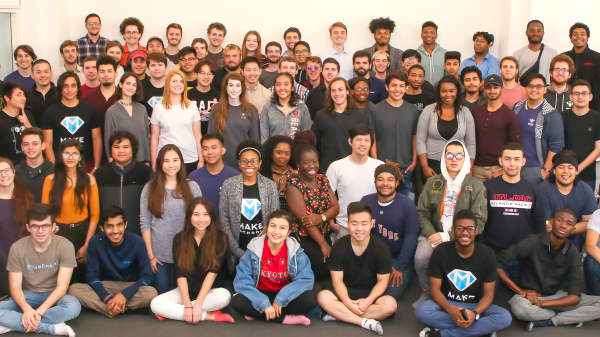ImpactAlpha, April 9 – Make School was started in 2012 to offer undergraduate-age students an alternative to technical training programs and traditional four-year universities. The institution has developed an accredited two-year computer science Bachelor’s degree program that students only have to pay for after graduating and securing a job.
Venture capital firm Venrock, once the Rockefellers’ family office, is backing the institution’s alternative model to higher education by leading its $15 million Series B funding round.
Make School fits in with a growing number of advanced education programs that allow students to pay for the curriculum based on an income share agreement, or ISA. This financing model, an alternative to burdensome and ballooning student debt, ensures that institutions’ financial incentives are aligned with student performance.
Colombian education finance firm Lumni acquires Paytronage to boost U.S. presence
What sets Make School apart from other institutions allowing students to study on ISAs is that it caters to undergraduate-aged students. Make School offers a resident-based two-year computer science degree, that aims to teach students high-demand skills, but also equip them with a well-rounded education. It has partnered with the Dominican University of California to secure accreditation from the Western Association of Schools and Colleges and to offer liberal arts courses, which are required as part of its degree program.
By comparison, most of the new coding schools that are cropping up in the U.S. and around the world (see: Holberton School, Laboratoria, Holacode, and Codecool) offer short, six-month programs, but focus on adults who are up-skilling, re-skilling or looking to change careers.
“They’re more university than bootcamp, and more bootcamp than university, if that makes sense,” Venrock’s Tom Willerer told ImpactAlpha. He explained that their model is more nimble that traditional universities, but that being accredited is appealing to employers, students and parents “who still care about that.”
He adds that Make Schools’ inclusion of liberal arts courses is also unique among new up-skilling and higher education models.
“What helps you get a job is technical. But what makes you succeed once you’re there is the critical thinking that comes with a liberal arts emphasis,” he said, adding, “They’re in this wide open blue ocean that no one else really occupies.”
Make School’s two year degree costs $70,000. Ninety percent of its students opt into its ISA program, which allows them to pay for their education over a five-year period after they secure a job earning $60,000 or more.
So far, Make School reports that it has 66 alumni working in the tech industry, earning an average of $95,000 per year. Forty-five percent of its students and alumni are under-represented minority students.
Prior to its Series B round, Make School had secured backing from Y Combinator and impact investors Kapor Capital and Learn Capital. Venrock, which backed Make School as its first education investment, is not an impact investor.
“I think a lot of the best companies get started because they want to solve a real problem,” said Willerer. “We look for companies that have a mission that really matters and can build a business around it.”
Venrock is among the oldest venture capital firms, having launched 50 years ago as the Rockefellers’ family office. It has since become an independent venture fund that is supported by Rockefeller money among numerous investors across eight investment funds.












